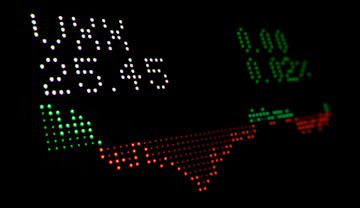
Momentum Trading Strategy: A Guide to High-Return Investment Opportunities
Momentum trading is a strategy that capitalizes on strong price trends in the market. This approach involves buying assets that are rising in price and selling those that are declining, based on the belief that these trends will continue.

Hand touching investment graph on phone
Benefits of Momentum Trading:
- Potential for high returns through well-timed trades
- Shorter holding periods offering greater flexibility
- Clear entry and exit points based on technical indicators
- Adaptability across various markets and asset classes
Risks and Challenges:
- High market volatility can lead to substantial losses
- Frequent trading results in higher transaction costs
- Requires constant market monitoring
- Success depends on strong market trends
- May miss long-term investment opportunities
- Risk of overtrading

Nine illustrated budget planning squares
Key Components for Successful Momentum Trading:
Technical Indicators:
- Moving averages to identify trend direction
- Momentum oscillators to measure price movement speed
- Relative Strength Index (RSI) to identify potential reversals
Stock Selection Criteria:
- Market outperformers
- Increased trading volume
- Positive news and earnings surprises
- Strong industry developments
Getting Started with Momentum Trading:
- Define clear trading parameters and goals
- Establish specific stock selection criteria
- Develop precise entry and exit strategies
- Implement risk management techniques
- Regularly review and adjust your trading plan

Hand holding phone showing banking app
Successful Momentum Trading Requirements:
- Strong understanding of technical analysis
- Comfort with active market monitoring
- Higher risk tolerance
- Disciplined approach to trading
- Ability to make quick decisions

Stock market volatility graph chart

Woman typing on laptop at desk

Stock market volatility graph chart

Woman typing on laptop at desk
Related Articles

Scalp Trading: A Beginner's Guide to High-Frequency Trading

